The Forgotten Story of How Uranus Got Its Name

Most planets have stories that read like myths, but Uranus has a naming journey that feels almost theatrical. It is a tale that begins with royal ambition, moves through scientific debate, brushes up against mythological symbolism, and eventually becomes woven into both astronomical history and quirky pop culture. Today, people laugh at the name before they learn the science, but few realize how many centuries of culture, power, and cosmic meaning are hidden inside those six letters.
Uranus is in the spotlight once again because it is reaching opposition. This celestial alignment, when the Earth sits directly between Uranus and the Sun, brings the ice giant to its brightest point in the sky. For many stargazers, this moment also opens the doorway to reflection. Opposition is a time when a planet’s energy appears amplified from our perspective on Earth. When the subject is Uranus, the planet of awakening, revolution, and cosmic upheaval, that amplification can feel especially electric.
Yet while people look up and marvel at its cyan glow and sideways spin, the story of its name resurfaces. For some, it is a delightful piece of trivia. For others, it is a reminder of how scientific discoveries are shaped not only by observation but by politics, culture, mythology, and human imagination. And for astrologers, the history of Uranus carries symbolic weight. A planet associated with shaking old systems loose was once almost named after a king. That irony alone seems like a cosmic joke.
This article explores Uranus from multiple angles. It weaves together its astronomical features, the astrology behind its symbolism, the disputes over what to call it, and the deeper philosophical threads that connect mythology with modern science. Whether you see Uranus as a physical world of ice and storms or as a spiritual archetype of awakening, its story invites contemplation.
The Discovery That Changed the Solar System
For most of human history, the sky appeared complete. Ancient astronomers recognized only six planets, and for thousands of years those were the only worlds known to orbit the Sun. That changed in 1781 when William Herschel, a musician turned astronomer, scanned the sky with his massive 40 foot telescope. This instrument, funded by King George III, was the largest in the world at the time and allowed Herschel to glimpse something unusual in the constellation Gemini.
At first, Herschel thought he had found a comet or a distant star. The object moved slowly across the background, hinting that it was something more substantial. Over the next two years, astronomers across Europe studied the strange newcomer. Eventually, they agreed: this was a new planet. It was the first major planetary addition to the solar system in recorded history.
Discovering a new planet altered humanity’s concept of cosmic order. It stretched the boundaries of the known universe and hinted that there might be more objects waiting beyond. The timing of the discovery also mattered. The late eighteenth century was a period of massive political and cultural change, with revolutions and new social structures emerging around the world. Many astrologers look back on this era and see the discovery of Uranus as a symbolic reflection of that transformative energy.
The Planet Almost Called George
The planets of our solar systems bear the Romanized names of the Greek gods. Uranus is the only planet whose name was derived from its Greek. Uranus was the god of the sky. His Roman name was Caelus. 🌌 🪐 #MondayThoughts #MondayMorning pic.twitter.com/YtDeZZ4gfD
— Michael Lambda (@Michael_Lambda) September 7, 2020
It may surprise modern readers that Uranus was nearly named after a monarch. When Herschel realized he had made a discovery worthy of history books, he chose to honor King George III, who had supported his scientific work with generous funding. Herschel proposed the name Georgium Sidus, which translates to George’s Star.
Although it was not technically a star, Herschel believed the name carried appropriate respect. However, astronomers outside Britain felt differently. Not only was the name politically biased, but it also violated the tradition of naming planets after mythological figures. If Jupiter, Saturn, Mars, Neptune, and Venus carried the names of ancient deities, then George’s Star felt out of place, even jarring.
The backlash grew quickly. Astronomers across Europe debated alternatives, and some even suggested names that matched ancient traditions. Eventually, German astronomer Johann Elert Bode offered a name that felt both historically and symbolically appropriate: Uranus.
Bode argued that this name created a coherent mythological lineage. In Greek mythology, Uranus is the sky god, the father of Cronus (who corresponds to Saturn) and grandfather of Zeus (who corresponds to Jupiter). In Roman myth, the counterpart of Uranus is Caelus, who also represents the heavens. This created a tidy generational progression in the planetary order, one that satisfied astronomers who preferred mythological consistency.
The transition to the name Uranus did not happen immediately. For decades, British astronomers deliberately clung to Georgium Sidus. But gradually, the global community shifted toward Bode’s choice. By about 1850, the name Uranus had become universally accepted.
A Name That Refuses to Behave
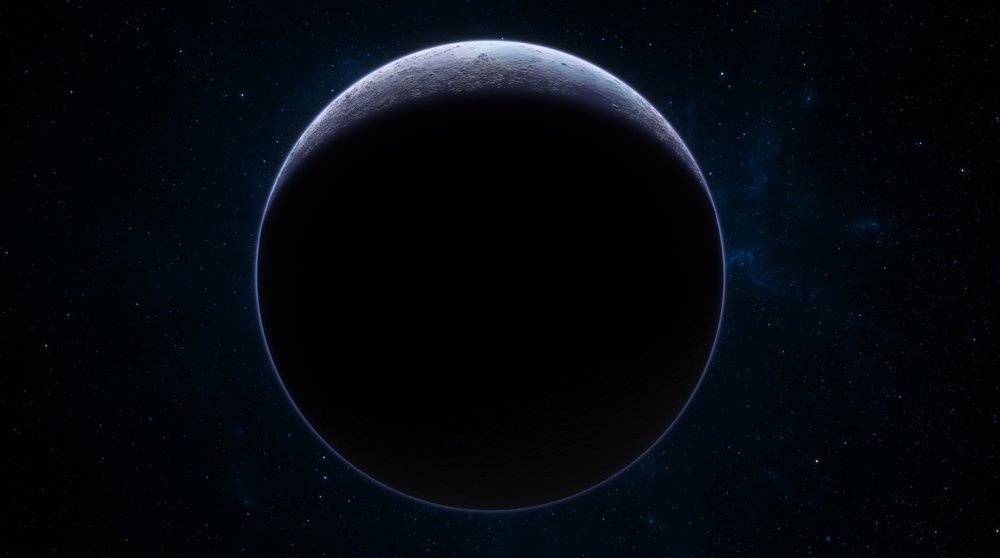
Although Bode’s choice followed mythological logic, Uranus soon developed a reputation he could never have predicted. Its pronunciation led to widespread jokes that still exist centuries later. Teachers, scientists, and broadcasters have experimented with pronunciations such as yur-un-us or YOOR-uh-nuhs to avoid embarrassment. However, the humor has become part of Uranus’s cultural identity.
This layers strangely well with its astrological symbolism. Uranus rules shock, rebellion, and dramatic awakenings. It represents the unexpected and the unconventional. Even the fact that its name cannot be spoken in a crowd without generating laughter fits its cosmic personality. Uranus disrupts norms. It brings unconventional perspectives to the surface. Its very name behaves like a provocateur.
At the same time, Uranus is the only planet named after a Greek god rather than a Roman one. Some historians think this was an oversight, others believe Bode preferred the Greek form intentionally. Either way, the deviation matches the planet’s tendency to operate outside standard rules.
Uranus at Opposition and the Energetic Meaning

Whenever Uranus reaches opposition, it becomes brighter, larger in appearance, and easier to locate in the night sky. Astronomically, this is the moment when the Earth is positioned between the Sun and Uranus. The sunlight that strikes the planet reflects directly back toward us, illuminating its icy surface and faint rings.
For astrologers, opposition is not merely a geometric alignment. It is an energetic amplification. Planets in opposition are said to face the Earth directly, offering their influence more clearly and without interference. When that planet is Uranus, the symbolism intensifies. Uranus is associated with the following qualities:
- Awakening
- Rebellion
- Innovation
- Sudden insight
- Disruption of old patterns
- Electric or surprising shifts
- Liberation
- Higher consciousness
During an opposition, these themes often rise in collective awareness. People may experience shifts in perspective, unexpected news, or deep realizations about personal freedom. Technology, politics, and scientific debates can flare up on the global stage. Opposition sometimes acts like a cosmic call to break out of routines or challenge outdated systems.
The Planet That Spins Sideways
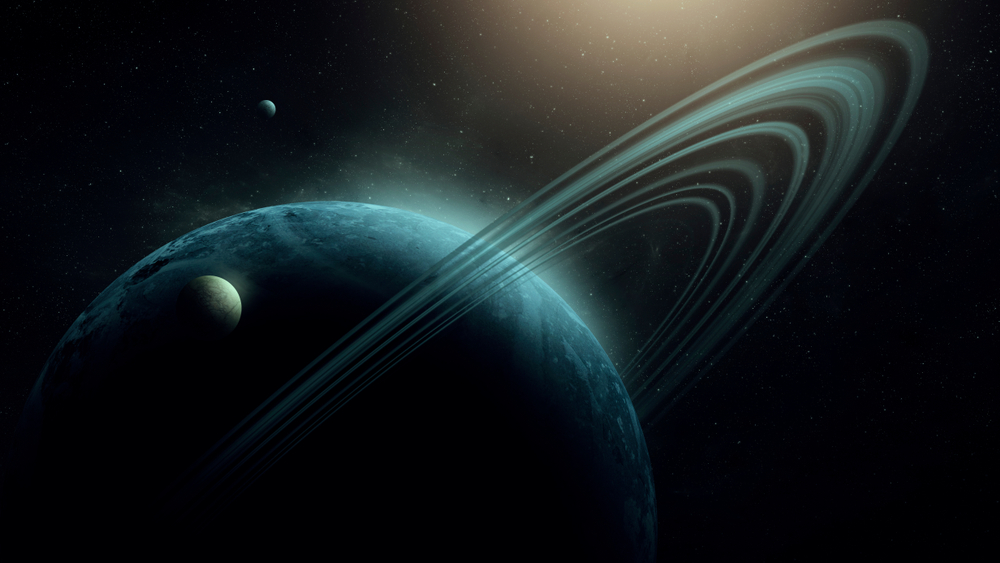
One of the most fascinating features of Uranus is its extreme axial tilt. Most planets rotate with a modest angle, but Uranus leans almost completely on its side at about 98 degrees. This means the planet essentially rolls around the Sun like a celestial ball. Scientists believe this tilt may have been caused by a massive collision with an Earth-sized object long ago.
This unusual orientation leads to enormous seasonal extremes. Each pole experiences 21 years of continuous sunlight followed by 21 years of darkness. The planet’s magnetic field is also misaligned and offset, creating auroras that do not match the poles in predictable ways. Its winds reach speeds of more than 500 miles per hour, and its atmosphere contains some of the coldest temperatures in the solar system.
From a spiritual perspective, Uranus’s sideways spin has symbolic resonance. It defies expectations. It challenges the definition of normal. It demands a shift in perspective, both literally and metaphorically. Uranus encourages us to see the world differently. Its tilt reflects the archetypal idea that enlightenment often arrives by flipping one’s understanding upside down.
The Myth and the Archetype
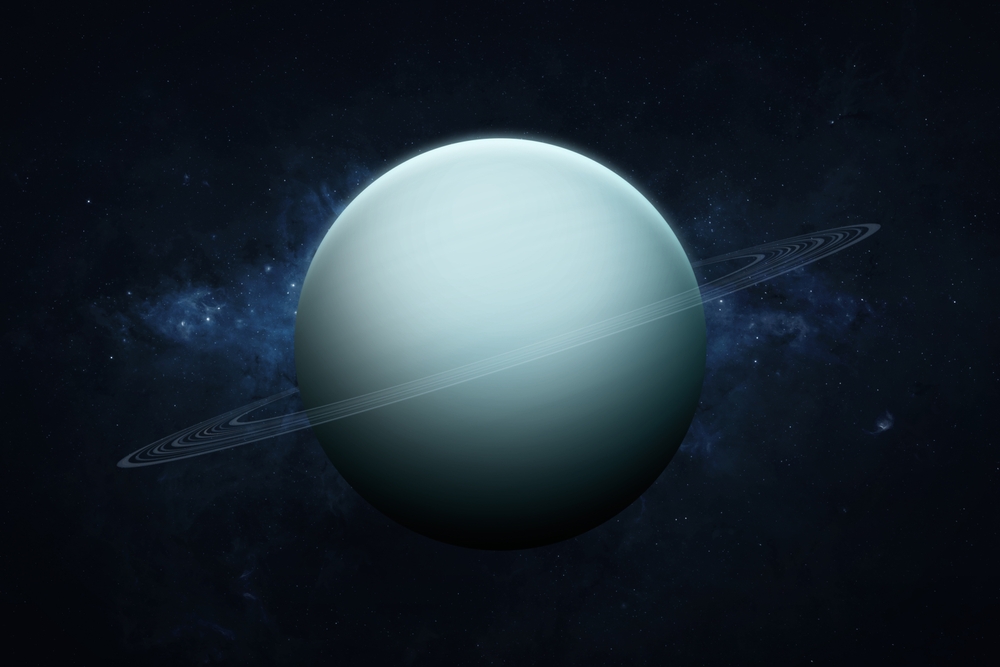
Mythology gives Uranus a powerful symbolic foundation. As the primordial sky father, Uranus represents the vastness of consciousness, the limitless potential of the heavens, and the unbounded nature of creation. In ancient stories, Uranus gives birth to the Titans and shapes the early cosmos. He represents the bridge between the unmanifest sky and the manifest world.
In astrology, Uranus carries this mythic energy into modern symbolism. It is the planet of inspiration and visionary thinking. It governs collective breakthroughs, scientific revolutions, the internet, electricity, and futuristic technology. Whenever humanity takes a step beyond old limitations, Uranus is considered the guiding force.
The fact that Uranus was discovered during an era marked by revolutions is part of why astrologers assign these traits to it. The American Revolution, the French Revolution, and the rise of new scientific frameworks all coincided with its emergence in human awareness. Astrologers often say that once a celestial body becomes visible to humanity, its energy becomes active in the collective psyche.
The Spiritual Story Hidden in Its Name
The story of Uranus’s naming controversy reveals a symbolic pattern. Herschel wanted to honor a king, grounding the discovery in the politics of the eighteenth century. Bode wanted to honor mythological lineage, grounding it in ancient tradition. The community eventually chose mythology over monarchy, symbolism over power.
From a spiritual perspective, this reflects the essence of Uranus itself. The planet represents liberation from rigid structures. Choosing the mythological name was a form of rebellion against political bias in science. It was a shift toward universal symbolism rather than national allegiance. It mirrored the cosmic personality of Uranus long before astrologers assigned meaning to it.
The surprising influence of its name also extended into chemistry. When the element uranium was discovered in 1789, its name was chosen in honor of the planet. The connection between Uranus and uranium further ties the planet to forces of transformation, energy, and sometimes disruption. Although this was not intentional, it aligns uncannily with Uranus’s archetypal themes.
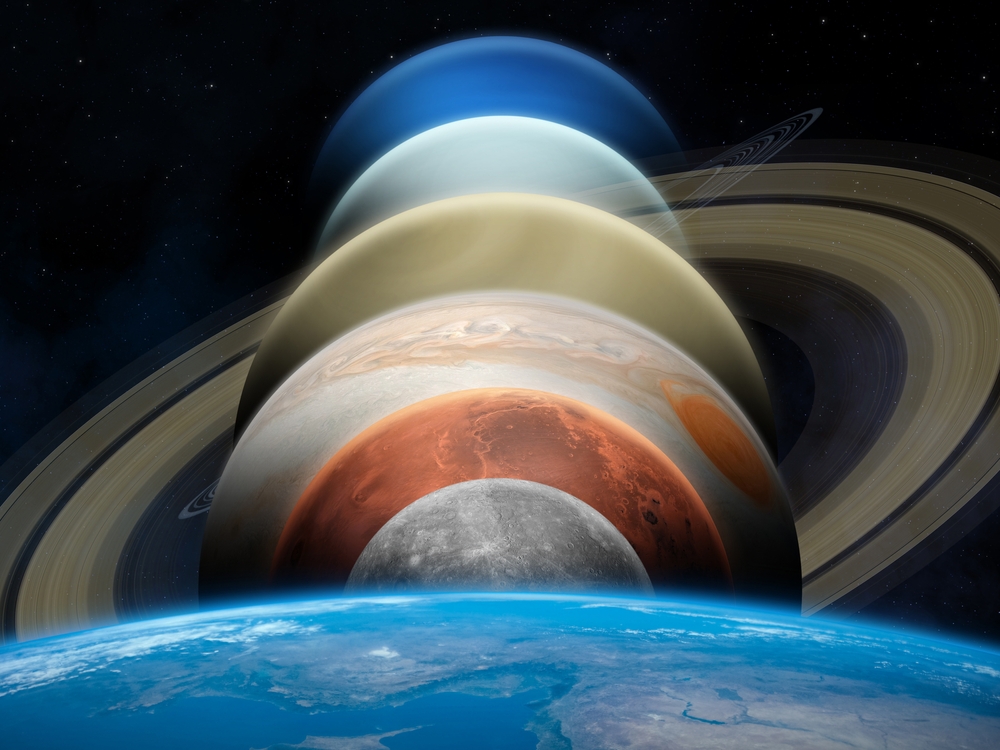
Uranus, Consciousness, and the Expanding Sky
From a scientific standpoint, Uranus challenges our understanding of planetary formation. Its icy interior, extreme tilt, and irregular magnetosphere raise questions about cosmic history. Some theories suggest it migrated from a different region of the solar system. Others propose ancient collisions or gravitational interactions with early planetary neighbors.
Astrology embraces these mysteries as part of Uranus’s personality. The planet represents the unknown, the unconventional, and the surprising. Just as its physical properties defy expectations, its symbolic meaning pushes the boundaries of consciousness. Uranus invites people to think beyond societal structures and explore deeper truths.
Many spiritual traditions associate the sky with higher awareness. Uranus, as the personification of the heavens, becomes a reminder that awakening comes from above, metaphorically or energetically. The planet invites humanity to look up, both literally at its cyan glow and symbolically toward expanded understanding.
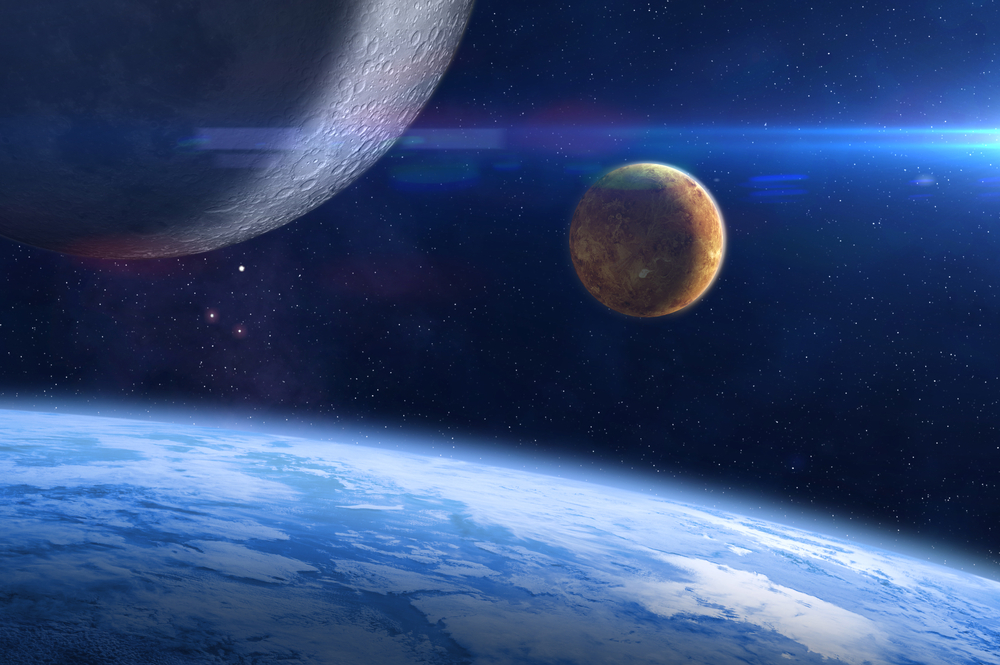
The Legacy of a Naming Debate
The debate over Uranus’s name was not just a scientific dispute. It was a clash between worldviews. The royal name represented tradition, hierarchy, and political influence. The mythological name represented universality, symbolism, and cosmic lineage. Choosing Uranus over George reflected a shift in scientific culture toward a broader, more mythically coherent structure.
Even today, the planet’s name reminds us that science and culture shape one another. Naming a planet requires negotiation, symbolism, and consensus. The International Astronomical Union now oversees these decisions, ensuring that modern naming reflects global collaboration rather than political power.
Uranus’s name still generates reactions, humor, and curiosity. Yet beneath the jokes lies a deeper truth. The planet carries a name that links sky mythology, astronomical discovery, chemistry, and collective consciousness.
Awakening Through Story and Sky
Uranus is more than an ice giant with a sideways spin. It is a world whose identity has been shaped by astronomers, mythologists, chemists, astrologers, and everyday observers who still laugh when they hear its name. Its story reminds us that scientific discovery is never separate from human culture. The naming of Uranus is a reflection of our values, our biases, our humor, and our cosmic imagination.
As Uranus reaches opposition, it shines brighter in the night sky and in the collective awareness. Its energy encourages awakening, insight, and a fresh perspective on old structures. The fact that its name once sparked controversy mirrors the disruptive power it symbolizes.
When people say they are only just learning that Uranus had another name, they are touching a deeper truth. The planet’s identity has always been fluid, contested, and evolving. Its journey from George’s Star to the primordial sky god reflects humanity’s ongoing relationship with the cosmos. It teaches us that discovery is never just about objects in space. It is also about how we see ourselves, how we name our world, and how we interpret the universe beyond us.
In this way, Uranus continues to do what it has always done. It awakens, surprises, disrupts, and invites us to look up with curiosity. Its story is not only astronomical or historical. It is spiritual. It is symbolic. It is a reminder that the sky is alive with meaning, and that every planet carries a story waiting to be rediscovered.
Loading...

